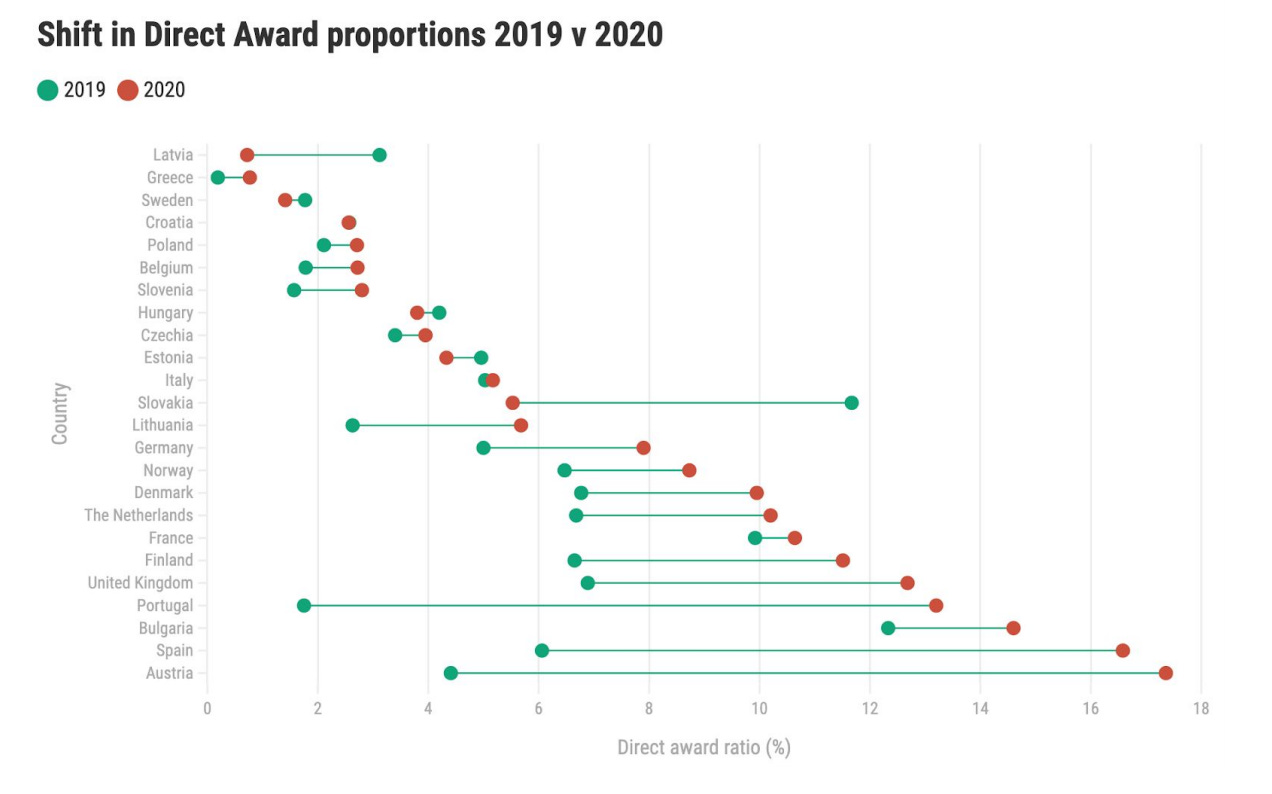Contracts, Data and Investigations – COVID-19: Edition 2020-11-13
Vaccine development contracts and purchases, competition in Europe, meals deluxe in Paraguay, and stories of money disappearing from public coffers in Afghanistan, Bangladesh, Nigeria
This newsletter gathers stories covering the use and abuse of government contracts during the COVID-19 pandemic and beyond. We’d really be happy about a like, and let us know about your stories and content. We’d love to hear about them.
While the Wild West of purchasing protective equipment was the focus in the early stages of the pandemic, we’re now keeping a keen eye on the vaccine. There is little information on what data will be made public about procurement processes, development, agreements with manufacturers, and distribution. Meanwhile, the first candidate by Pfizer/BioNTech is showing promise to be up to 90% effective in protecting people from the transmission of the virus in interim trials.
Sydney Lupkin provides some context to Pfizer's claim that they did not receive any support from the government. Unlike other companies participating in Operation Warp Speed, the US government’s program to fast track the development of the vaccine, Pfizer didn't get support for research and development. But Pfizer did get a purchase agreement through a third party worth nearly $2 billion for 100 million doses that used a more secretive contracting mechanism. In fact, BioNTech received €375 million from the German government, as Bloomberg’s Riley Griffin and Drew Armstrong report. The EU commission has already confirmed a contract for 300 million doses. Data collected by researchers at Duke University’s Global Health Innovation Centre maps COVID-19 prepurchases around the world.
Tracking competition in Europe: In a new report, Spend Network and They Buy For You analyze over 100 million rows of tenders, contracts, and spend throughout Europe to assess COVID-19-related procurement and identify trends, patterns, and outliers. One insight: While direct awards were on the rise, some countries such as Latvia and Slovakia appear to have used competitive procedures throughout.
Meals deluxe: In Paraguay, civil society organization reAcción has analyzed purchases under the COVID-19 emergency at the sub-national level, finding purchases not permitted during the emergency and increased prices in meal kits among other irregularities. Read the full analysis (in Spanish).
Where did public money go? A new investigation by CLIP and partners tracks emergency funds and who benefited in Guatemala, Honduras, Costa Rica, and Jalisco, México. In one of the investigations, PODER’s Ricardo Balderas finds how millions went into upgrades for a private hospital in Jalisco.
Changing records: Aderemi Ojekunle for Nigeria’s Dataphyte tracks a contract to improve water access as part of the COVID-19 emergency. After the journalist requested more details on the identity of the contractor of the project, the contract value changed – but the details of the supplier are still not public.
Medical procurement: Pajhwok Afghan News reports on attempted efforts to embezzle $10 million via no-bid public health projects in the public health ministry of Badghis province, Afghanistan. Abdul Raqeeb Sail finds equipment for Balkh hospital purchased at prices up to 13 times higher than normal.
Off the books: In Bangladesh, much of the country’s emergency procurement has not been made public by using direct awards, or was conducted off the books altogether, finds a report by Transparency International Bangladesh.
The government on the bench? UK’s failures to publish details on £4 billion in emergency contracting will potentially end up in court, writes Juliette Garside for the Guardian. The Good Law Project, part of the cross-party group of MPs that launched the legal action, claims that the average length of time taken to publish COVID-19 contracts now stands at 78 days, while contracts should be published within 30 days.
In a positive step toward more transparency, the World Bank has started publishing more details on government contracts, including those that it reviews after the process is completed. In Sierra Leone, there are now 14 contracts instead of the 3 contracts available before the new policy, finds Toby Mc Intosh in Eye on Global Transparency.
***
For our recommendations, resources and tools, check our COVID-19 resource page.
This newsletter has been put together by the Open Contracting Partnership. Comments? Suggestions? Got a story to share? Write to Georg at media@open-contracting.org. Thanks for reading.
Did a friend forward you this email? Click here to subscribe.





